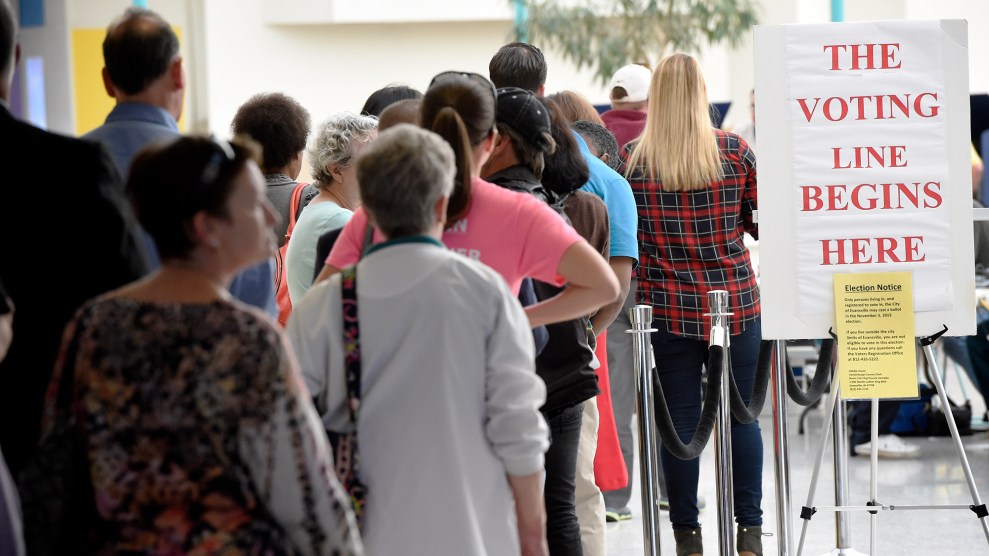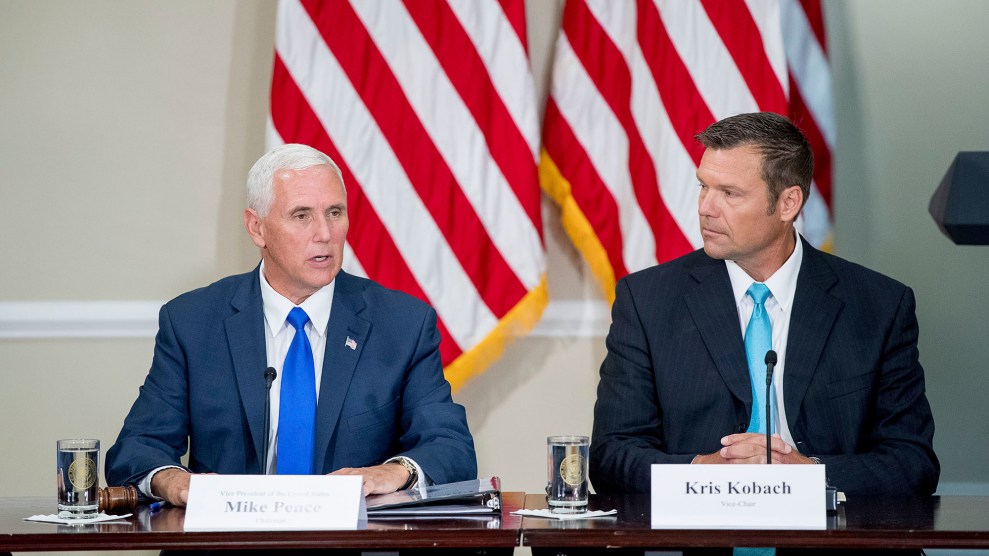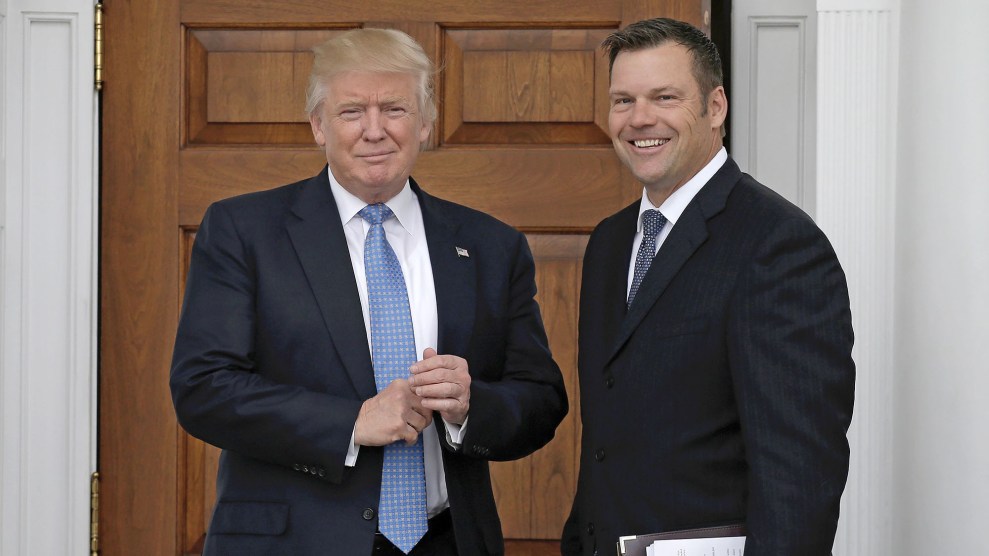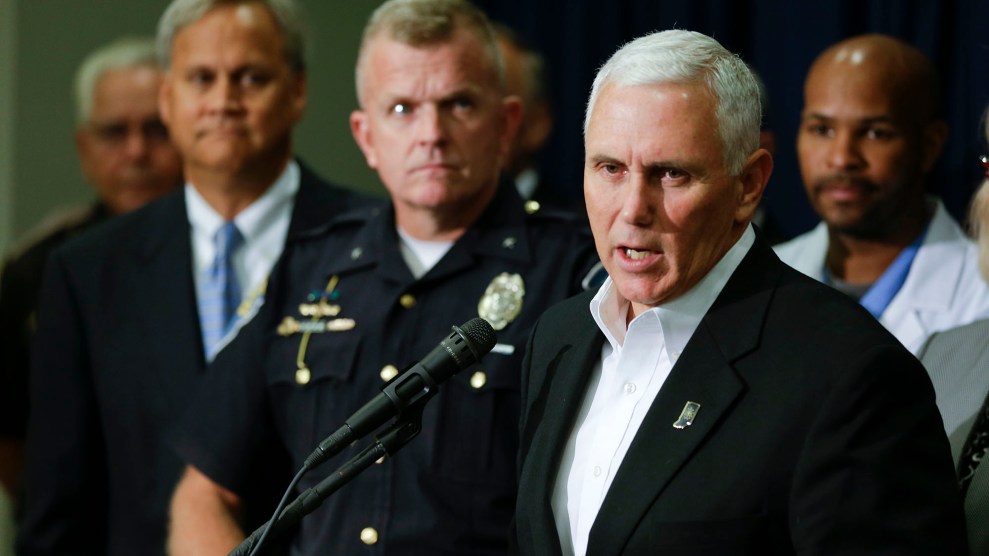
People line up to vote in Evansville, Ind., Nov. 3, 2015. Mike Lawrence/Courier & Press via AP
The Indiana chapter of the NAACP is suing state election officials to block a new law that would shutter hundreds of polling locations in a county with a large number of African American and Hispanic voters. The lawsuit, filed in federal court Wednesday, alleges that the law specifically targets a particular region of the state with a large minority, poor, and elderly population, impeding the ability of those voters to cast a ballot.
The law was signed by Republican Gov. Eric Holcomb in May, as Indiana was already increasing voting opportunities in whiter Republican strongholds while decreasing them in areas with more minority and Democratic voters. An investigation by the Indianapolis Star found that since 2008, when Barack Obama won the state, Republican officials have driven up turnout significantly in conservative, suburban areas by increasing the number of early voting locations. At the same time, they have driven down turnout in Democratic, urban areas by cutting the number of early polling stations. In May, the NAACP, its Indiana chapter, and Common Cause Indiana, a progressive watchdog group, filed a lawsuit over the disparity in early voting locations.
This spring, the Republican-controlled legislature added to this trend with the Lake County Precinct Consolidation Law. The law targets a single county that has the state’s second-largest African American population and its largest Hispanic population. Under the law, the county would have to eliminate or consolidate all voting precincts with fewer than 600 active voters as of the 2016 election. (Voters who are “inactive,” meaning that election officials have flagged them as potentially no longer residing in the county, are not counted, even though they are eligible to vote and often do.)
According to the NAACP’s lawsuit, the law threatens more than half of precincts in the county’s three majority-minority cities: 87 of Gary’s 105 precincts, 55 of Hammond’s 79, and 25 of East Chicago’s 31. Only 41 percent of precincts in the county’s whiter areas are at risk. The NAACP also points out that the law targets a single county, leaving alone approximately 1,345 precincts outside Lake County that contain fewer than 600 active voters. The legislature justified the law as a cost-saving measure, although county officials had not asked for any cost reductions.
Consolidating or eliminating precincts can cause serious disruptions to voters—especially in areas, like these in Lake County, with a large number of people who are poor, disabled, and elderly, together with an inadequate public transportation system. Those who are accustomed to their former precinct may go to the wrong venue. If a precinct is moved further away, people may lack the time or ability to get there. And fewer precincts means longer lines. Additionally, the law did not require or provide any funding for education or outreach to inform voters about the precinct closures.
This is not the first time that Indiana Republicans have sought to shutter precincts in Lake County. In 2014, the state passed a similar law, although the impact was slightly lower because it targeted precincts with fewer than 500 active voters, compared to the new law’s 600-voter threshold. That law was overturned by a state court for unjustifiably targeting a single county but reinstated by the state’s Supreme Court. By that time, however, the law had expired.
This lawsuit alleges violations of Voting Rights Act, as well as the First, Fourteenth, and Fifteenth Amendments to the Constitution. It is being aided by top election lawyers in Washington, DC, and funding from a pro-Democratic group—an illustration of the resources that Democrats and their allies are putting into voting rights battles around the country. One of the attorneys working with the Indiana State Conference of the NAACP is Marc Elias, who has argued multiple voting rights cases before the US Supreme Court.













